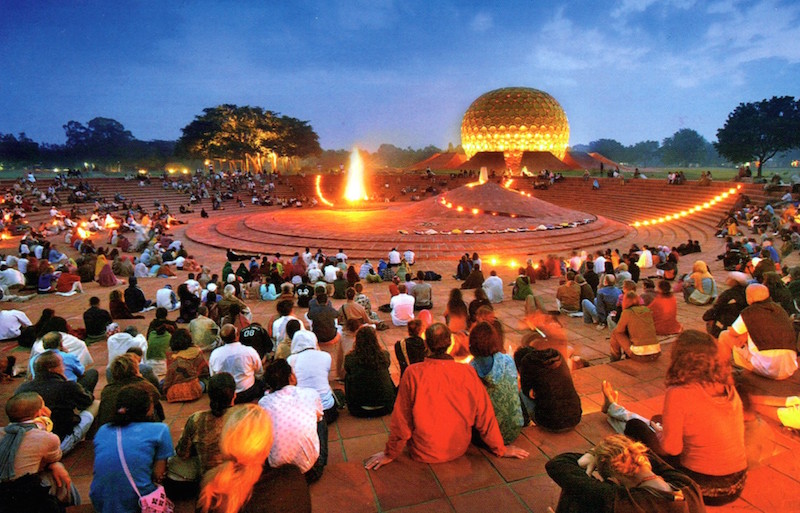The Soil of India Alone could Sustain and Water the Experiment of Auroville
- By : Anirban Ganguly
- Category : Articles

It was an age when the Cold War raged dividing the world into power blocs, with global equations and relations often on tethers and on the verge of a grand clash, when young minds across the globe were undergoing a restless churn, it was in such an era, that Mirra Alfassa, universally known and revered as the Mother—Sri Aurobindo’s spiritual collaborator—laid the foundation for a city of the future that she named, Auroville. Since its founding, that international city—a spiritual smart city of sorts—has lived across and grown through 50 summers, facing numerous challenges and eventually emerging as a radiating symbol of mankind’s primeval aspiration for a higher, nobler and more sublime collective existence.
In 1965, speaking about her vision of such a city, the Mother had observed that Auroville was to be a universal town, ‘where men and women of all countries are able to live in peace and progressive harmony, above all creeds, all politics and all nationalities. The purpose of Auroville is to realise human unity’.
Inspired by Sri Aurobindo’s ideal of human unity, his vision of India as the eventual spiritual leader and guide of the world, his emphasis of cultural and civilisational collaboration and synthesis in which India was to play a crucial role, Auroville was founded and given practical shape by the Mother, when she was over 90. The inauguration ceremony held on February 28, 1968 was attended by delegates of 124 countries, including India.
That she conceived of a new city and infused it with the aspirations and possibilities of realisations, imparted it physical direction and spiritual sanction, demonstrated the Mother’s undiminished energy and her profound identification with Sri Aurobindo’s vision. Her faith that India was the paramount land of light and spiritual knowledge was seen in every collective activity that she undertook or project that she initiated. Auroville was one of her last such efforts. Through it she gifted humanity with a permanent experiment that would seek to work out and embody India’s civilisational aspiration and goal of achieving human oneness and harmony.
The Mother was convinced that it was the soil of India alone which could sustain and water the experiment of Auroville. It was, in a sense, a modern experiment, a modern instrument and platform that would express India’s hoary message of the world being one family. Over the years, the experiment not only survived but has expanded and diversified through the efforts and toil of numerous individuals and groups from across the world and India, who, propelled by their thirst and aspiration for discovering a deeper meaning to life, proceeded to hitch themselves to the attempt.
Cultural integration, innovative education efforts, focus on sustainable growth and development, environment conservation, renewable energy, alternative architectural models—Auroville has sustained these multi-dimensional activities with a futuristic dimension, with the aim of trying to find a framework of the future in which harmony, integralism, wholeness and oneness are the dominating paradigms.

















